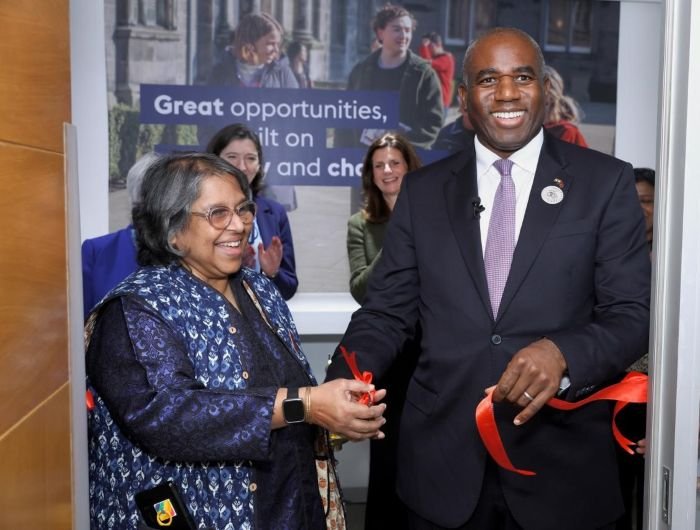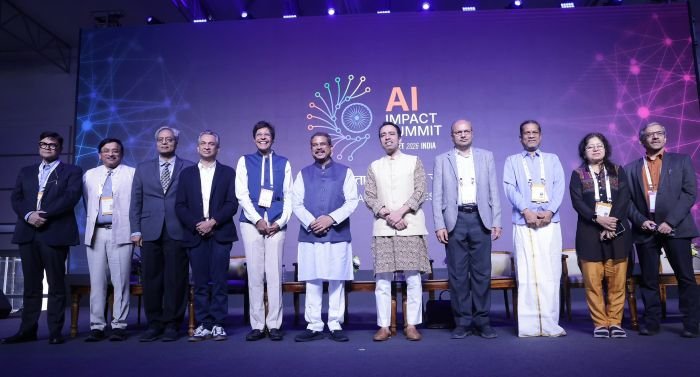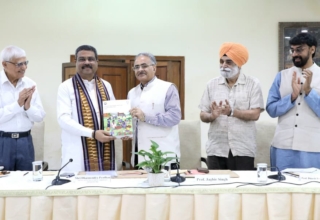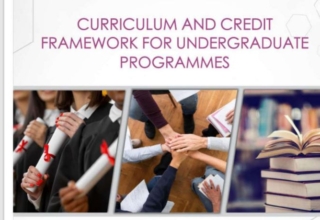
May 26, 2017 marked the third anniversary of BJP-led National Democratic Alliance (NDA) government at the centre, And, expectedly after winning several recent state and municipal elections and high popularity of Prime Minister Narendera Modi, the government, celebrated satisfactorily its three years of ‘development performance.’
However, whatever the government might have to say or think, its performance in education for the last three years, has been chaotic and lacking a vision that is prompting educationists and activists across the education sub-sectors to come to a conclusion that PM Modi is not paying any heed to education.
CONTRARY to what the BJP manifesto of 2014 election said about the importance of education as the most powerful tool for the advancement of the nation and the most potent weapon to fight poverty, and promised to raise the public spending on education to 6% of the GDP and equal opportunities, the education story of three years is nowhere on these stated positions and lack for vision on national agenda for education is completely missing from the government. In fact, there is a wide spread apprehension that whatsoever little good education architecture the country has built over all these decades may actually crumble because of the disinterest this government is showing in education.
According to Kulbushan Sharma, National President of The National Independent Schools Alliance (NISA), comprising of 36,400 budget schools nationally, this government is indifferent to them. RTE activist and National Convenor of RTE Forum (RTE Forum comprising 10,000 organizations, individual activists and educationists in over 20 states), Ambarish Rai feels that this government has taken several counterproductive steps to weaken Right to Education, which is essentially a school education development program prescribing minimum standards. Almost echoing disappointment over state of school education in the rural India in particular, Prof D S Chauhan, President Association of Universities (AIU) and vice-chancellor of GLA University, Mathura feels the government must pull up the states with constitutional authority.
On its part the ministry of HRD came out with a 36-page report card, “sabko shiksha, acche shiksha (Good Education for all) and a brief statement was issued by the union HRD minister, Prakash Javadekar in which he assured transparency and accountability of the system while acknowledging that quality of education at levels is a challenge.” We are addressing the quality of school education and after nine years of RTE Act, we have come out with definite bench marks of competency to be acquired by the student as we notified learning outcomes, brought back board exams. We are also reforming the teacher education completely and making education child centric while treating teacher as a change agent,” the minister stated. He also stated that private sector has a role and government is brain storming with various people to see how PPP can be encouraged in education.
On higher education, Javadekar said that the focus was on research and innovations and we are committed to equip our institutions to be part of global experiments and research work while making a mention about IMPRINT, Hackathon and 20 world class universities initiatives. The minister also made a point of helping start up from hostel rooms and incubation centres.
Achievements like notifying Learning Outcomes to benchmark competency to be achieved by students in each standard, 66 lakh digital text books, setting up of National Testing Agency for competitive entrance exams, having more than 15,000 NCTE approved colleges providing 25,000 courses for teachers, expansion of KVs (109 new) and JNVs (62 new) and a bill on doing away with no detention clause in RTE Act are some of the highlights in school education in the report.
Model curriculum to be changed every year by AICTE, workshops for innovation in pedagogy, teaching, learning and improvement of quality in technical education , seven new IIMs, six new IITs, New IIM Bill granting graded autonomy, roll out of phase III of TEQIP to improve quality of technical education with Rs. 2,600 crore, six new research parks, 16 Tech business incubators and 15 Start-up centres, Higher Education Financing Agency (HEFA) for raising Rs. 20,000 Crores to finance creation and upgradation of research and other infrastructure, MOOCs platform SWAYAM and all 36 central universities to be wi fi enabled by this July are some key highlights from higher education in the report. It also mentions that the process of reforming two regulators of higher education – UGC & AICTE- is in progress and there will be more autonomous colleges
The government may be contended that it is doing a wonderful job but a stark reality is that it disconnected with the field. It has clearly failed so far to project education as a national mission and fundamental development plank for 125 billion India.








